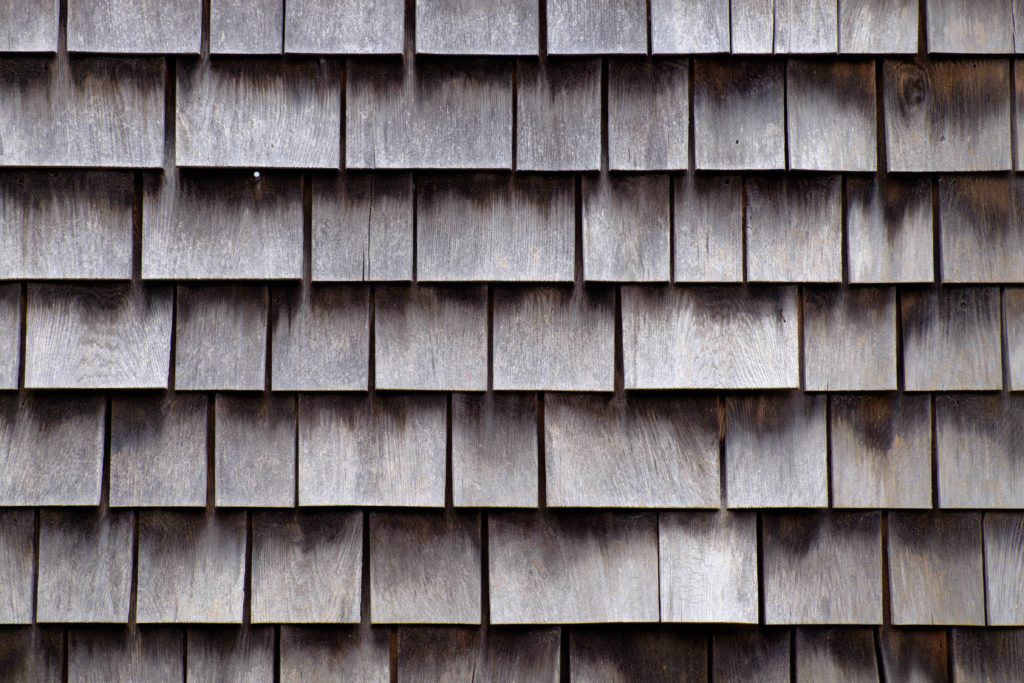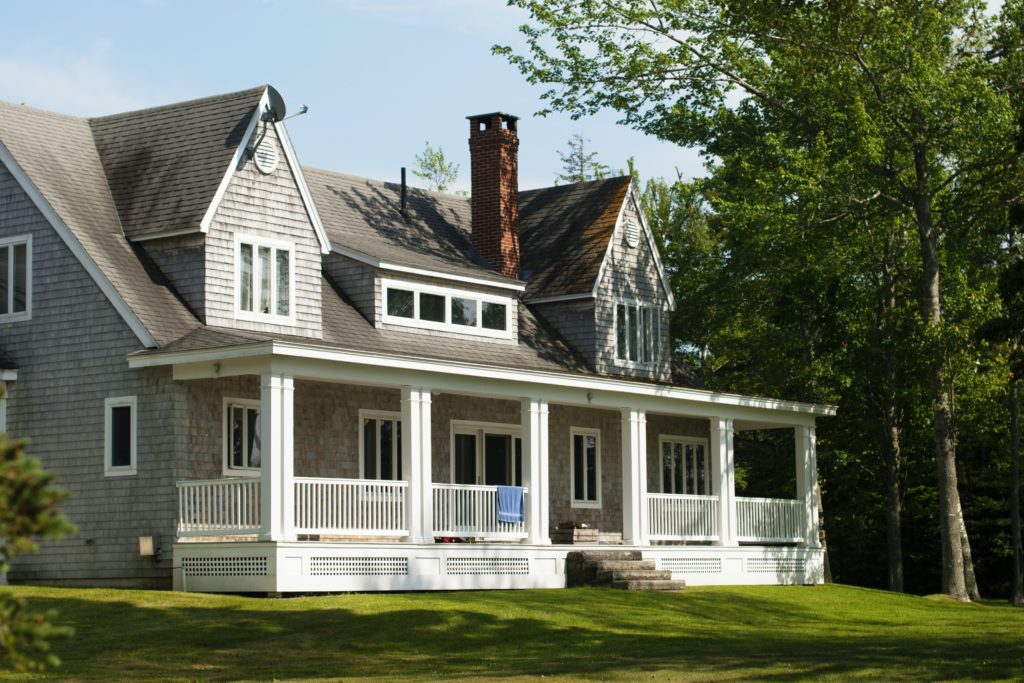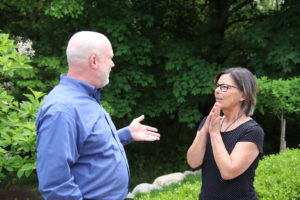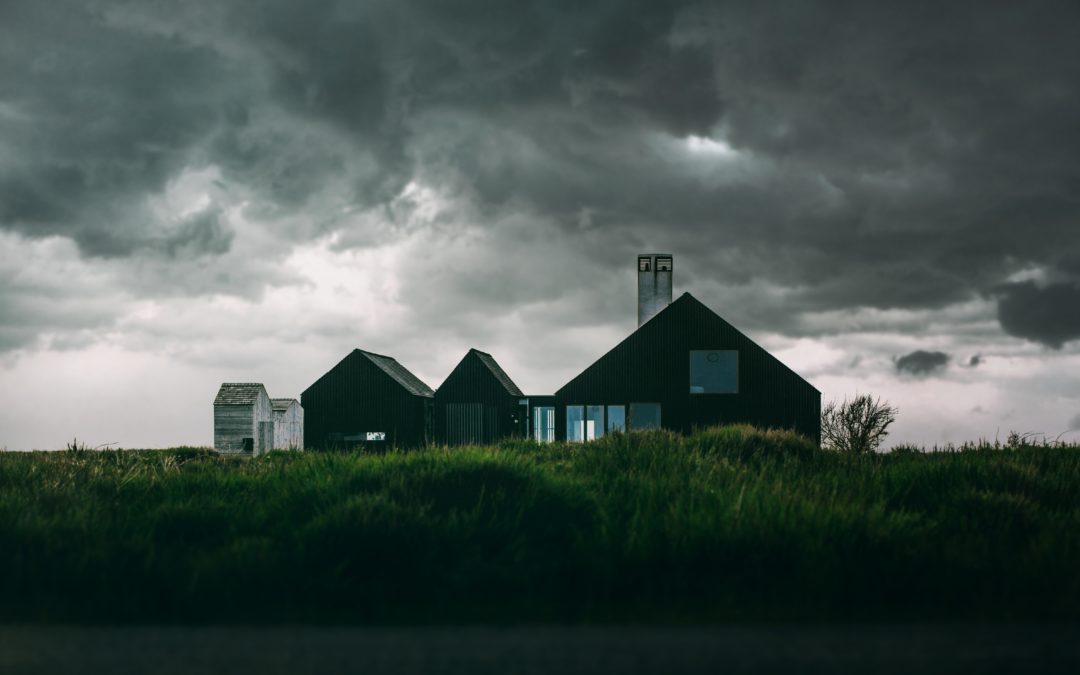Love the sound of a good rain storm? How about the sound of water dripping through the ceiling or dripping on the floor? Not so enjoyable.
You launch into action with towels and buckets.
It’s around this time you begin to think about your homeowners insurance.
Here are some answers to questions you might be asking yourself:
1. Does my homeowners insurance cover storm damage to my roof?
Typically the answer is yes. It will depend on your policy, but homeowners insurance usually covers:
- wind damage
- hail damage
- damage from fallen objects, like tree limbs
- resulting interior damage
Example: High winds from a storm blow some shingles off your roof. The opening in the roof causes rainwater to leak into your family room and damages the wall. Your homeowners insurance will likely cover the storm damage to your roof and the resulting damage to your family room.
However, if the leak in your roof is not caused by storm damage, you may not have coverage for your roof.
Let’s go back to the previous example: There’s a severe thunderstorm and you notice water trickling down the wall in your family room. You know your roof is old, but you also think the storm may have caused the damage, so you call your agent. After a claims representative evaluates your roof, they conclude the water is coming in due to wear and tear, not damage caused by the storm. This means the damage to your roof was not storm-related, so the roof repairs will not likely be covered by your homeowner’s policy.
However, the damage to your wall will likely be covered with your homeowners insurance subject to the terms and conditions of the policy.
It’s important to understand that homeowners insurance is designed to respond primarily to sudden events, such as wind and hailstorms. Aging, regular upkeep, or maintenance are not covered by a homeowners policy.
2. My neighbor’s tree fell on my roof during a storm. Whose homeowners insurance pays for the damages?
In most American states, if your neighbor’s tree or any part of it falls on your property and causes damage to your property through no fault of their own (due to a snow storm, winds, hurricane, or other so-called “act of God”), they are not responsible. You will have to file a claim with your own property insurer if you want to be reimbursed for damages to your roof.
This is likely a surprise to you! But the key distinction to remember is that they weren’t actually at fault.
If, however, their tree or a branch from it fell as a result of your neighbor’s negligence (for example, an overhanging branch had been dead for years and you’ve complained to your neighbors about it for nearly as long but they neglected to have it cut down), they are legally liable.
This works both ways, so make sure you maintain the trees on your property, too, removing dead branches or dead trees.

3. What steps should I take if a weather event damages my roof?
Take pictures prior to the clean-up. If your contractor begins cleaning up before the claims adjuster inspects the damages, make sure you take photos of the damages. These might include pictures of hail stones, loose or damaged shingles. or fallen branches.
Do your best to prevent more damage in the meantime. It may be necessary to cover the roof with a tarp or board up broken windows to prevent further damage. You may consider contacting a contractor to assist with these temporary repairs but make sure you document the damage with photos.
Submit your claim. This is when your Healy Group personal insurance agent can really make a difference. We not only file the claim, but we walk you through the entire process from clean-up to repair.
4. Can I start repairs immediately?
No. A Claims representative must first evaluate and determine the cause and scope of the damages. They are tasked with trying to determine what happened. They are well-versed in the research and know what to look for when they evaluate a roof for storm damage. You may seek evaluations and estimates from roofing contractors; however, know that a claims representative is required to evaluate damages and determine if a claim will be paid before work commences.
5. Am I allowed to repair my roof myself or am I required to use a roofing contractor?
Yes, you can repair your roof yourself. However, do not begin repairing your roof before a claims representative has inspected it first. It is a policy requirement.
If your damage is covered, your claim will include funds for professional installation or repairs, subject to the terms and conditions of the policy. It’s not just coverage for the materials.
But, if you feel so inclined as to install your own roof, that’s your choice. Just make sure your insurance company has inspected your roof damage first. Also, please note that the claim amount you may receive will be adjusted since you are not paying for professional installation.

6. Why did my neighbor’s insurance replace his roof but my insurance did not replace mine?
All roofs weather storms differently. Storm damage is not equal. The high winds and large hail that damaged your neighbor’s roof may not have damaged your roof at all. There are several factors that impact how a roof will weather a storm:
- Age of roof
- Amount of debris build up
- Animal access
- How a roof was maintained and installed
- Brand and grade of roof surfacing materials
- Directions the slopes face
- What direction the storm came from
- If the roof has tree cover or other natural shields
Your neighbor’s roof may be older or it may have had more debris hit it. If your roof is newer or better maintained, it may not suffer damage from the storm.
Questions? Contact a Healy Group Persona Insurance Advisor for answers.

Connie Greenwood, Personal Insurance Advisor
Connie Greenwood has 35 years of experience as an Insurance Advisor. She enjoys helping her clients and prospects understand their insurance options, and crafting insurance solutions tailored to their unique needs. Connie finds great joy in being a trusted advisor for her clients. She loves helping protect their financial welfare against unforeseen accidents and circumstances and bringing them peace of mind.
Tim Pingel, Personal Insurance Advisor
Tim Pingel has almost 20 years of experience as a personal insurance adviser. He provides individuals, couples, and families with home, auto, and umbrella insurance. His ultimate goal is to be his clients’ trusted adviser and expert, so they have the peace of mind and protection they deserve.
Note: Information for this blog came from https://www.auto-owners.com/ao-blog/-/blogs/homeowners-insurance-and-roof-storm-damage-5-things-you-absolutely-need-to-know-18


Recent Comments